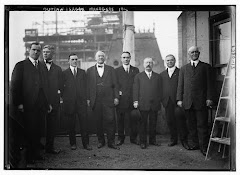Everybody give a warm welcome to our newest contributor, Blue Scissors! (Ok, BeezusKiddo unilaterally picked that name for her, maybe she'll pick a different one)
Reviewer: Blue Scissors
Review: When Elizabeth asked me if I'd be interested in reviewing What Happens on Sunday by Laurie Koozer for her blog, I, of course, said yes. Since this book involves women, Pittsburgh, and football, and I am a woman who lives in Pittsburgh and likes football and reading, Elizabeth thought that I might enjoy this book.
Reviewer: Blue Scissors
Review: When Elizabeth asked me if I'd be interested in reviewing What Happens on Sunday by Laurie Koozer for her blog, I, of course, said yes. Since this book involves women, Pittsburgh, and football, and I am a woman who lives in Pittsburgh and likes football and reading, Elizabeth thought that I might enjoy this book.

Pittsburghers are full of Pittsburgh-centric stories. We also like to see our city featured on the national stage. The Pittsburgh Steelers are the nadir of both Pittsburgh trivia and national exposure of Pittsburgh. The Steelers have consistently been one of the top football teams in the NFL, frequently making playoffs, with six team Super Bowl wins. Fans are rabid. People move away, but the Steelers are always their favorite team, spreading Steelers Nation across the nation and globe. And the Steelers have the strongest female fan bases in the NFL.
This book follows six women through the 2005-2006 Steelers football season. This was an excellent season to choose from a plot perspective. The Steelers barely squeaked into the playoffs as the sixth seed and won three road games to make it to the Super Bowl, a huge (and dramatic) feat. (I personally was "required" to drive to a small bar in Irwin for every playoff game because "they won last time we were all here.") Similarly, the characters in this book overcome obstacles while they ride the Steelers roller coaster.
- Jen is 21 and has recently found out she's pregnant. She and her boyfriend Dave plan a wedding and prepare for the unexpected child.
- Patty is recently divorced and struggles to make connections with her troubled, closeted teenage son, Robbie. She lost her season tickets in the divorce, but she is a huge fan and supports the team with special fan mail.
- Desiree (Jen's cousin) is married to Patty's ex-husband, who is spending an increasing amount of time at work. She's become more successful than her background would predict but feels unsettled.
- Shannon spends her evenings tending bar part-time and putting up with her self-centered sister while secretly crushing on her sister's boyfriend.
- Angela (whose best friend is Patty's son, Robbie) hates the Steelers and can't wait to leave Pittsburgh when she graduates from high school. Due to her father's assertion that she's a "curse," she's "forbidden" from watching the games.
- Megan is a hot mess. She drinks too much, spends all her money, dresses provocatively, and sleeps around. She gets a new position at work and must cope with new responsibilities.
Because we would only spend a few pages at a time with each character, it was difficult to keep track of who was who for the first part of the book. The characters are interrelated (moreso than what I've noted above), which helped to a certain extent, but this book would have done well with fewer people. For example, although they ended up being very different characters, it took me a while to differentiate between Shannon and Megan. Megan ended up being deliciously unlikeable, but sympathetic. I found myself rooting for her to get her shit together already. However, Shannon's story, while somewhat interesting, could have been eliminated entirely from the book. Jen also felt underdeveloped, and I didn't really care whether she sorted things out with Dave.

There were a number of characters who were extremely interesting and I would have liked to read more about them. In particular, the arc involving the overlapping stories of Patty, Angela, and Desiree was well-developed and engaging. Patty is probably the most interesting character because she's someone you know, but not very well - she's your neighbor down the street, she's your aunt's best friend - and the peek behind her curtain reveals the most surprising and compassionate results. I'm so glad Angela was included because it's absolutely true that not everyone in Pittsburgh is a huge "bleed black and gold" Steelers fan, and it's annoying when all your family and friends can't make plans because there's football on. The description of her desire to see the bigger picture outside the city, and her sometimes misguided attempts to protect Robbie from what she sees as his biggest problems, ring true. And Desiree is one of those people who seems like you would hate her but it turns out she's really awesome. We all know people like that.
Overall I would certainly recommend this book to people. It's something that would be interesting to any reader, even if you don't like football, and even if you're not from Pittsburgh. In which case you should obviously read it because Pittsburgh is awesome.









































